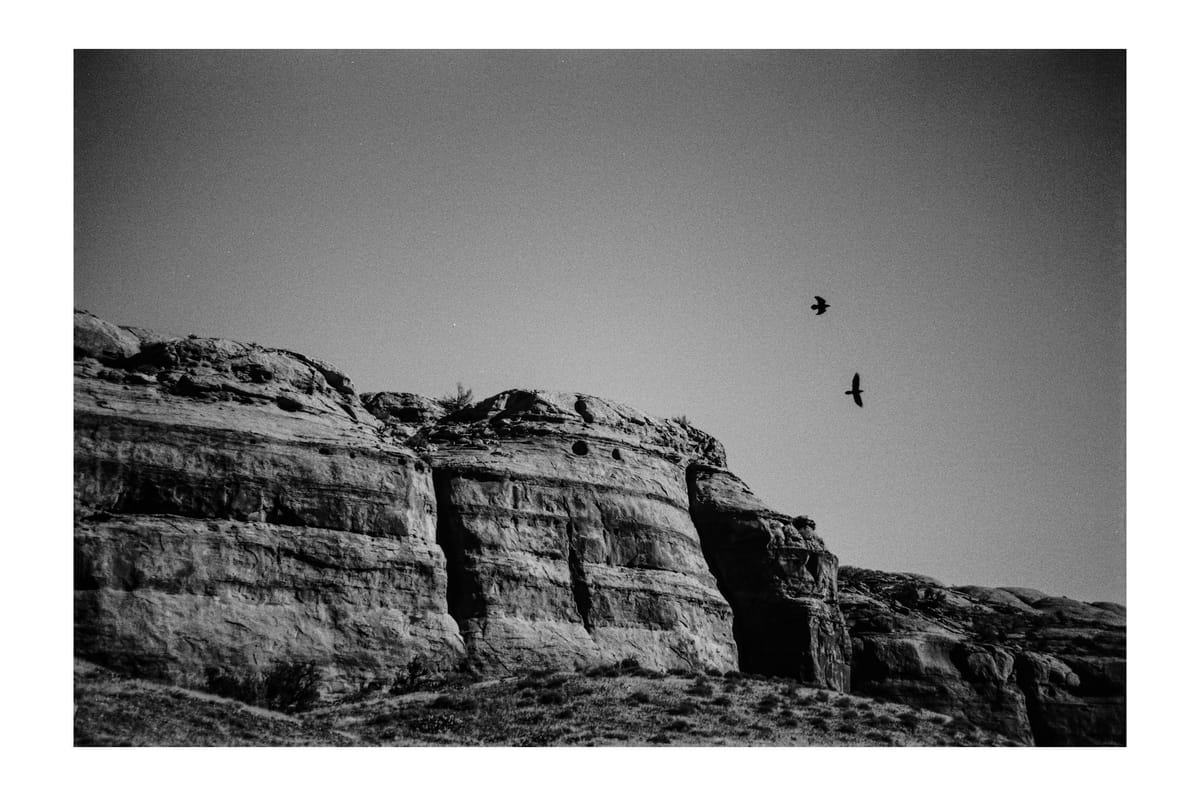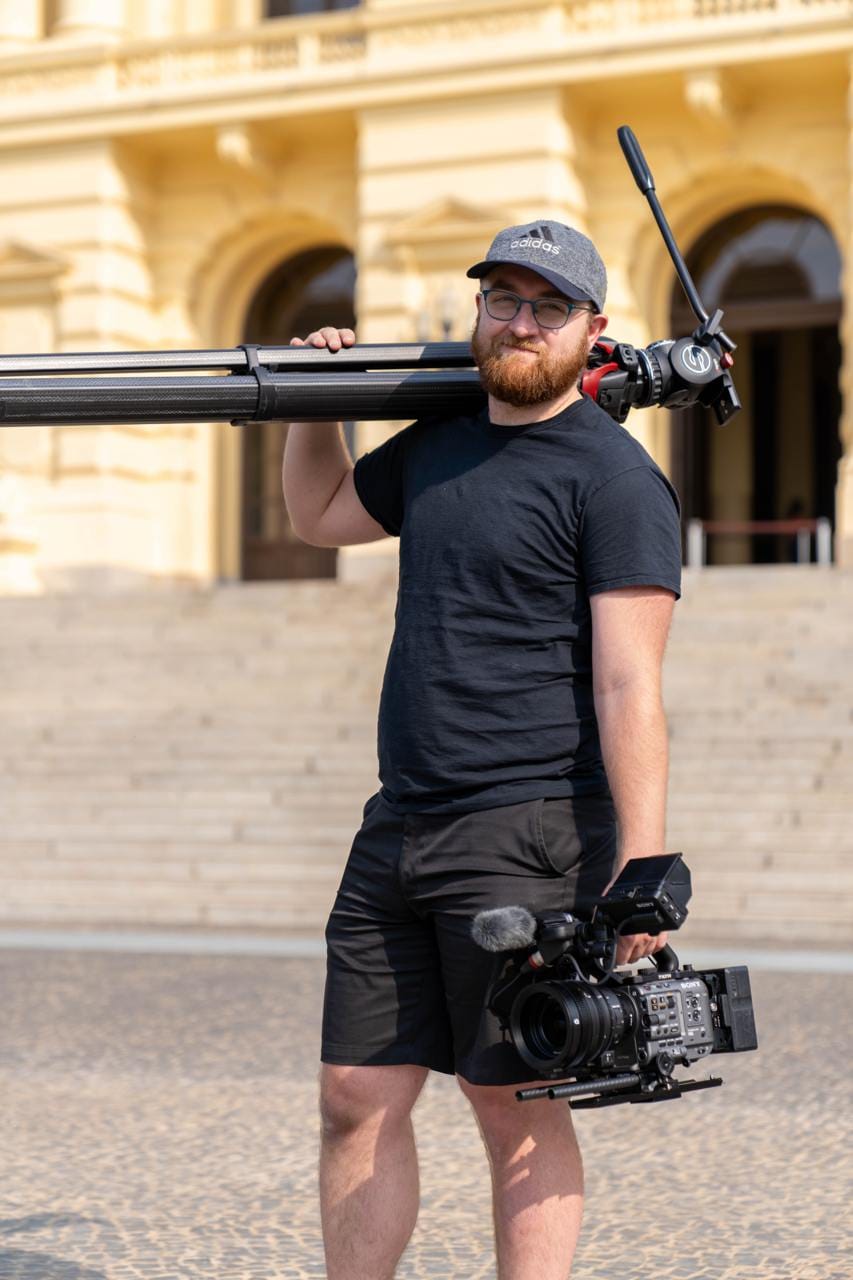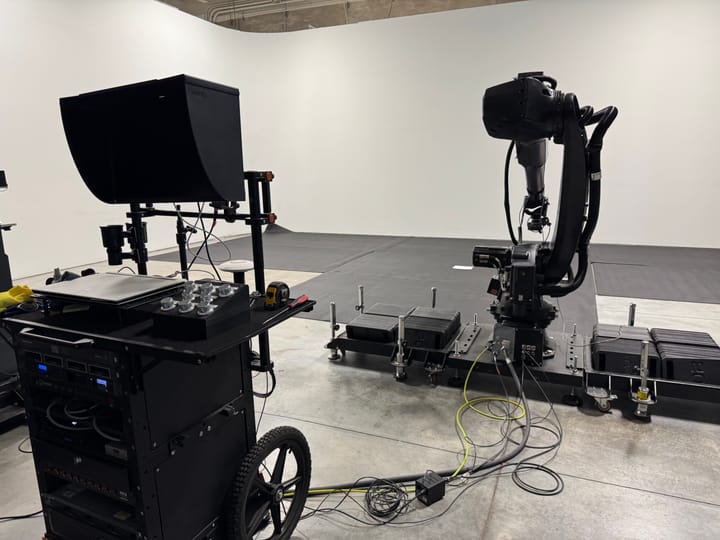Film Freelancing in 2025: What I'd do if I was first starting out
In 2025, anyone can be a filmmaker — but turning it into a sustainable, full-time career has never been harder.

In 2025, anyone can be a filmmaker — but turning it into a sustainable, full-time career has never been harder.
AI is getting faster, clients are getting pickier, and the market is getting more saturated; creative talent alone isn't enough to get noticed, to get calls, and to get called back. There are so many hurdles, yet no one really talks about the business side of filmmaking – all of the early decisions when you are first starting out that can shape your career and define your trajectory as a freelancer — which is why I am writing this article in the first place. The industry is a struggle, but there are ways to make it just a little bit easier.
I've written out this article based on everything I've learned talking to successful freelance pros, hiring freelancers for shoots, and from helping administrate the business side of the content you see. I'm lucky to work full-time for a production company I love, but if I had to start over, here is how I would do it.
Tip 1: Structure my freelancing like a business – by making it one

When people first make the jump to freelance, most don't think twice about business structure. We're too focused on getting gigs and making things to focus on administrative tasks. But here’s the truth: your creative work might get you hired, but your business setup is what keeps you protected, paid, and sustainable long-term.
If I were starting over, I’d form an LLC on day one. Not because it’s trendy, but because it gives you legal separation between your personal life and your freelance income. It opens up tax benefits, write-offs, and helps you look more professional to bigger clients. Likewise, if something goes wrong on a shoot (broken gear, injured crew, contract dispute), you want that liability on your business — not your personal assets.
Plus, if you're freelancing, you're already running a business; might as well act like it.
So, should you be an LLC, S-Corp, or just take 1099s under your name?
- If you’re just starting and making under $60K/year → A single-member LLC taxed as a sole proprietor is perfect. Easy to manage, low fees, and offers legal protection.
- Once you’re earning consistently over $75K/year → You might consider an S-Corp election (still under your LLC) to save on self-employment taxes. You’ll pay yourself a salary and take the rest as distribution. Just know it comes with extra paperwork and payroll setup. But since we are just starting out, be a single-member LLC.
- If you’re not ready to commit yet → Sure, you can stay a sole prop and just collect 1099s. But you’ll miss out on deductions, protection, and legitimacy — all things that matter the moment a job goes sideways or a brand wants a W9.
Here’s exactly what to do.
- Pick a name (even if it’s just YourName Media LLC)
- File an LLC with your Secretary of State (usually $100–$300 depending on your state)
- Get an EIN from the IRS (free to do yourself. Do not use a service like Bizee. You can do it all yourself with a simple google)
- Open a separate business checking account
- Start tracking all income and expenses with Wave, QuickBooks, or even a simple spreadsheet
That one afternoon of admin work will save you so many headaches later — and it makes tax season way easier.
And once you’re official, the fun starts: you can write off gear, software, mileage, part of your phone bill, website hosting, even a percentage of your home office if you work from home. That gear you were going to buy anyway? Now it’s a deduction.
It doesn't matter if you're a DP, gaffer, sound, or in the art department. Anyone and everyone should start out as an LLC when you begin freelancing.
Tip 2: Get yourself a kit – but only one that pays for itself
Buying gear is one of the easiest ways to feel like you’re making progress. I’ve been there — one paid shoot and suddenly you’re deep into YouTube reviews, convincing yourself you need that new camera body or set of cinema lenses. But if I were starting over today, I’d try to building a self-paying kit as fast as I could.
Owning gear can be advantageous – in fact, I've chosen a couple of people to work on shoots because they had their own kit or pieces of gear that they could bring to set. As a producer trying to coordinate a lot of moving parts, we tend to gravitate towards people who can make the shoot (and therefore our life) a little easier. Being able to book someone and their gear means one less rental to worry about. On top of that, it's becoming harder and harder to justify hiring a shooter and then paying for the gear they will use rather than just finding someone who can shoot and has the gear themselves. Owning your own gear gives just one more leg up on the competition.
But what gear should you own? Well, only the gear that checks three boxes.
- Is it gear I can afford?
- Is it gear that can pay itself off?
- Is it gear that works for what I'm doing now, not just what want to do in the future (or is it gear I've rented so many times that buying it would save me money)?
Here's how I think about it. If you spend $5,000 on a camera package, and are charging $250 a day for it, you would at least 20 paid days before you break even. That doesn’t include insurance, repairs, or the fact that it could be outdated in three years.
On top of that, if the paid days don't come, is it something that I can still afford to pay off without having to sell? If the answer is no, go a different route. Otherwise, you're getting yourself into trouble.
Lastly, everyone wants the camera gear with the highest specs. I'd love to shoot every project with an Arri Alexa, or in 8K on a RED Raptor, but not every project demands that. In fact, a lot of people are doing a lot more with a lot less. Having just a basic package – something that shoots 4K, a couple of lenses, and a basic audio kit — goes a long way.
What exactly I would get is another article (FX3...), but regardless of that, it's important to go in with a plan to track everything. Days needed to break even, days rented, projects shot, ROI per item. Without a plan, we're buying things we can't afford and selling services we don't understand.
Check out this article for a free excel sheet to help you track and understand your ROI on gear!
Tip 3: Sell your professional self professionally.
In 2025, having talent isn’t enough — you also have to be findable. And while we have found freelancers through word of mouth or recommendations, the way we find people to work with on shoots is typically this workflow:
Find role on Production Hub -> If no luck, search Google
If you aren't findable, you aren't hireable. So how do you make yourself found? You need to build your digital presence through three things: a website, a professional email, and a professional social media page.
This isn’t about going viral — it’s about building trust signals. A potential client should be able to search your name and quickly understand who you are, what you offer, and how to hire you.
Your website should be simple & easy to navigate.
It should show off your best work, give a one line description of what you do plus what you offer, and give people a way to contact you. If you have gear to rent, publish that on your website as well for easy access.
Your email should be professional.
When you buy your website domain, you'll have the option to build an email from that domain. You should always do it. Why? There is a lot more trust and confidence when a client emails nick@CinematographySocialClub.com rather than nickstan24@gmail.com. It just feels more professional, and perception is half the game when you are starting out.
Your social presence should be an extension of your portfolio.
I'm going to be honest. I don't really look at show reels. But I do look at Instagram, and having an Instagram that feels alive, feels like you, or at least shows off the work you do makes me feel like you know what you are doing. A mixture of BTS, final product, or just general work makes me feel like I can understand your style and level of expertise more than a show reel would. Also, the secret to getting hired is to have gotten hired before. Showing that someone else paid for your work gives me confidence to pay you for your work — capitalism is weird like that.
Still make that reel, but see if you can make that reel into social as well.
I have chosen so many gaffers, grips, and sound freelancers to be on projects simply because they were easy to find. Those I haven't found through the internet came as recommendations from people I found on the internet first, and were booked. So make yourself findable.
Final Thoughts
There’s no perfect roadmap to freelancing, and anyone who says otherwise is probably trying to sell you something. But there are smarter ways to start. Ways that save you time, money, and a few of the headaches that most people had to learn the hard way.
But if there’s one thread that runs through all of this, it’s that you don’t need to wait to be more experienced, more established, or more “ready” to treat what you do like a business. You just need to start making thoughtful, strategic decisions — even if you’re still figuring the rest out.
Freelance filmmaking in 2025 is tough. But with the right foundation, it’s more than doable. It’s sustainable. It’s scalable. And it’s a career worth building.





Comments ()